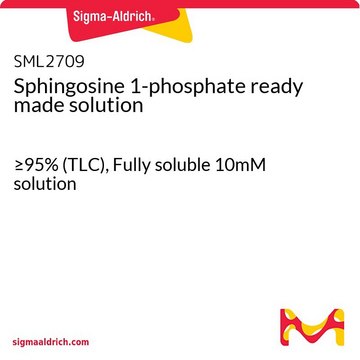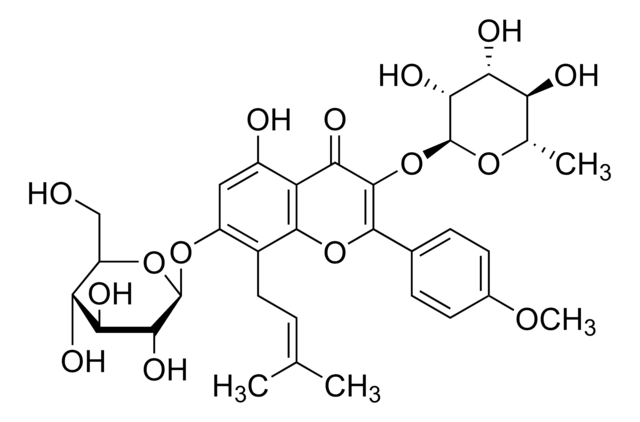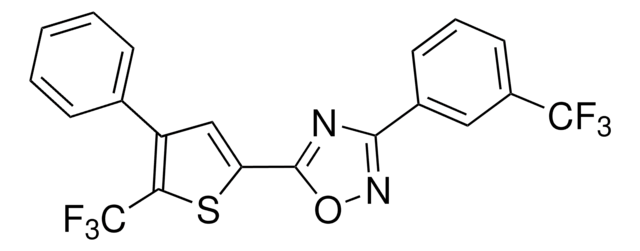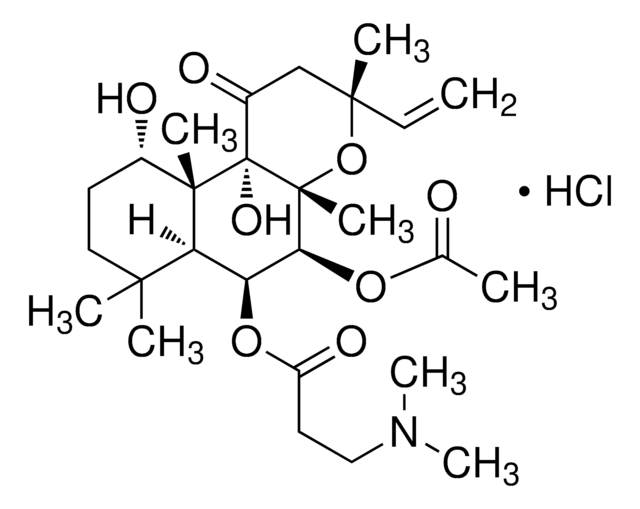73914
Sphingosine 1-phosphate
≥98.0% (TLC)
Synonym(s):
(2S,3R,4E)-2-Amino-4-octadecene-1,3-diol 1-phosphate, D-erythro-Sphingosine 1-phosphate
About This Item
Recommended Products
Quality Level
Assay
≥98.0% (TLC)
form
powder
composition
carbon content, 56.97%
hydrogen content, 10.09%
nitrogen content, 3.69%
lipid type
sphingolipids
storage temp.
−20°C
SMILES string
CCCCCCCCCCCCC\C=C\[C@@H](O)[C@@H](N)COP(O)(O)=O
InChI
1S/C18H38NO5P/c1-2-3-4-5-6-7-8-9-10-11-12-13-14-15-18(20)17(19)16-24-25(21,22)23/h14-15,17-18,20H,2-13,16,19H2,1H3,(H2,21,22,23)/b15-14+/t17-,18+/m0/s1
InChI key
DUYSYHSSBDVJSM-KRWOKUGFSA-N
Looking for similar products? Visit Product Comparison Guide
Application
Sphingosine-1-phosphate in ocular health: Research demonstrated that a selective agonist for Sphingosine-1-phosphate receptor 1/5 could mitigate ocular vascular pathologies, suggesting therapeutic potentials in eye disease management, it is also responsible for regulating various intracellular processes, including cell survival, differentiation, and proliferation (Nakamura et al., 2024).
Targeting diabetic kidney disease: The study investigated how Plantaginis Semen, through the sphingosine kinase 1/Sphingosine-1-phosphate pathway, could ameliorate diabetic kidney disease, underscoring the pathways role in metabolic health (Lan et al., 2024).
Advancements in neurodegenerative disease treatments: A review focused on the development of small-molecule modulators targeting Sphingosine-1-phosphate receptors, presenting new directions in treating neurodegenerative diseases (Sankar Kar et al., 2024).
Biochem/physiol Actions
Packaging
Storage Class Code
11 - Combustible Solids
WGK
WGK 3
Flash Point(F)
Not applicable
Flash Point(C)
Not applicable
Certificates of Analysis (COA)
Search for Certificates of Analysis (COA) by entering the products Lot/Batch Number. Lot and Batch Numbers can be found on a product’s label following the words ‘Lot’ or ‘Batch’.
Already Own This Product?
Find documentation for the products that you have recently purchased in the Document Library.
Customers Also Viewed
Our team of scientists has experience in all areas of research including Life Science, Material Science, Chemical Synthesis, Chromatography, Analytical and many others.
Contact Technical Service













